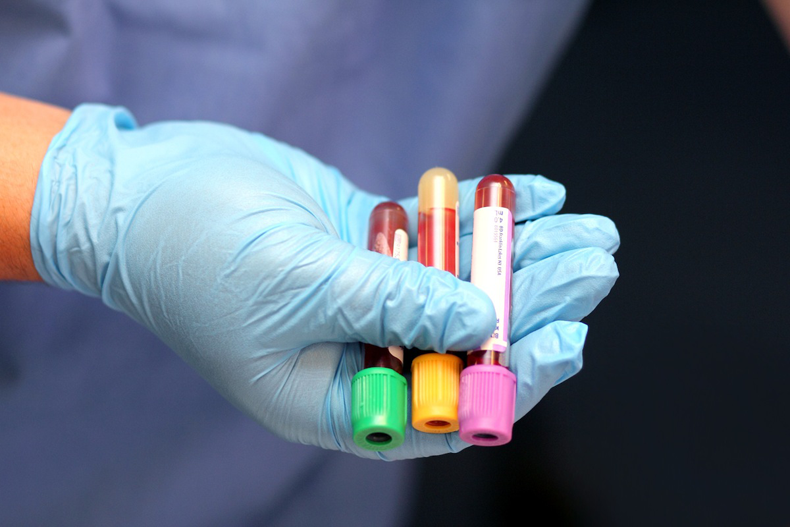Why Become a Phlebotomist? Top Reasons to Start Your Healthcare Career Today
If you’re considering a fulfilling career in healthcare, becoming a phlebotomist can be an excellent choice. This profession offers a unique blend of patient interaction, hands-on medical procedures, and opportunities for growth. Whether you’re just starting out or seeking a rewarding change, exploring the reasons to become a phlebotomist coudl be your first step toward a stable and meaningful healthcare career.
What Is a Phlebotomist?
A phlebotomist is a trained healthcare professional specializing in drawing blood samples from patients for tests,transfusions,donations,or research. Their role is vital in the medical diagnostic process, and they work closely with nurses, doctors, and laboratory staff to ensure accurate specimen collection.
Benefits of Becoming a Phlebotomist
1. Entering the Healthcare Field Quickly
Compared to other medical careers requiring years of schooling, becoming a phlebotomist is relatively quick. Many programs can be completed in less than a year, allowing you to start working sooner and begin making a difference.
2. High Demand and Job Stability
The healthcare industry consistently shows strong growth. According to the U.S. Bureau of Labor Statistics, demand for phlebotomists is projected to grow by 17% from 2020 to 2030 – much faster than average. This high demand translates into excellent job stability and opportunities for employment across various healthcare settings.
3. Competitive Salary and Good Benefits
Phlebotomists earn a respectable salary, with average annual wages ranging from $32,000 to $37,000, depending on location and experience. Many employers also offer benefits such as health insurance, paid time off, and retirement plans.
4. Flexibility in Work Settings and Hours
Phlebotomists can work in hospitals, clinics, blood donation centers, labs, and even mobile units. Additionally, many positions offer flexible scheduling, part-time options, or shift work, making it adaptable for various lifestyles.
5. Personal Satisfaction and Patient Interaction
helping patients directly, often during stressful times, provides a profound sense of fulfillment. Your skills can reduce patient anxiety, and being part of a team that helps diagnose and treat illnesses is truly rewarding.
Practical tips for Starting Your Phlebotomy Career
- Research Certified Programs: Ensure your training program is accredited by relevant bodies, such as the National Healthcareer Association (NHA) or American Society for Clinical Pathology (ASCP).
- Gain Hands-On Experience: Look for programs offering practical internships to boost your confidence and skills.
- Prepare for Certification: Earning a certification can improve job prospects; find out about certification requirements in your state or country.
- Develop Soft Skills: Compassion, attention to detail, and steady nerves are essential for triumphant blood draws and patient interactions.
- Stay Current: Keep up with industry best practices and continuing education opportunities to advance your skills.
Case Study: A Day in the Life of a Phlebotomist
Maria’s Story: Maria started her phlebotomy training six months ago, and now she works at a busy hospital. Her day involves drawing blood from patients of all ages, ranging from infants to elderly, frequently enough during high-stress situations like emergency rooms. She finds joy in reassuring nervous patients and collaboratively working with healthcare teams to ensure accurate lab results.
first-Hand Experience: What It’s Really Like
Many phlebotomists highlight the importance of patience, good interaction, and technical proficiency. Although it involves occasional challenges like difficult veins or uncooperative patients,the job is highly rewarding for those who enjoy helping others and working in a medical setting.
Benefits Table: Why Choose a Career as a Phlebotomist
| Benefit | Explanation |
|---|---|
| Quick Entry | Complete training in less than a year and start working fast. |
| Growing Industry | High demand ensures job security and ample opportunities. |
| Good Compensation | Competitive salaries with benefits include health insurance and PTO. |
| Flexible Schedule | Options for shift work, part-time hours, and various work environments. |
| Fulfilling Career | Direct patient interaction and vital role in healthcare diagnostics. |
Conclusion: Is a Career as a Phlebotomist Right for You?
Choosing to become a phlebotomist offers a compelling pathway into the healthcare industry. It combines rapid entry, job stability, meaningful work, and the prospect to make a positive impact on patients’ lives. If you’re compassionate, detail-oriented, and eager to start a rewarding healthcare career, becoming a phlebotomist might be the perfect fit. Begin your journey today, and take the first step toward a fulfilling future in healthcare!
Remember, the healthcare sector needs dedicated professionals like you. with proper training and dedication, you can build a successful career that offers personal fulfillment and professional growth.
